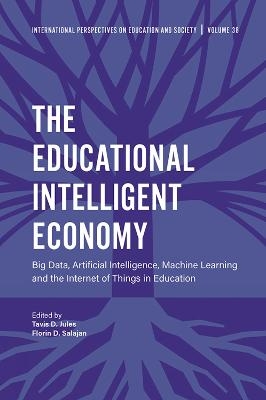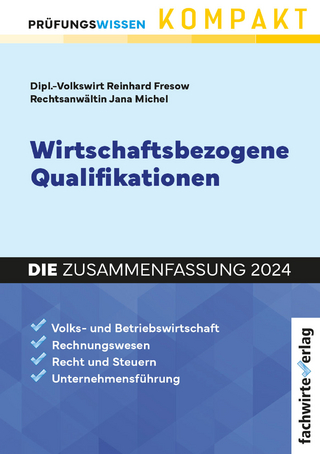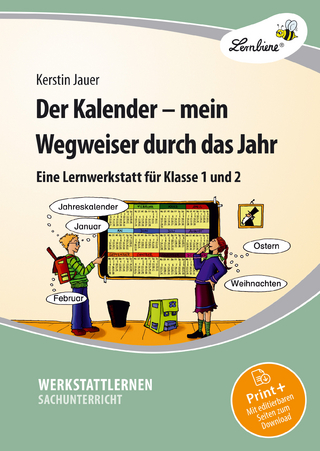
The Educational Intelligent Economy
Emerald Publishing Limited (Verlag)
978-1-78754-853-4 (ISBN)
Access to big data, the “new commodity” for the 21st century economies, and its uses and potential abuses, has both conceptual and methodological impacts for the field of comparative and international education.
This book examines, from a comparative perspective, the impact of the movement from the so-called knowledge-based economy towards the Intelligent Economy, which is premised upon the application of knowledge. Knowledge, the central component of the knowledge-based economy, is becoming less important in an era that is projected to be dominated and defined by the integration of complex technologies under the banner of the fourth industrial revolution. In this new era that blends the physical with the cyber-physical, the rise of education intelligence means that clients including countries, organizations, and other stakeholders are equipped with cutting-edge data in the form of predicative analytics, and knowledge about global educational predictions of future outcomes and trends. In this sense, this timely volume links the advent of this new technological revolution to the world of governance and policy formulation in education in order to open a broader discussion about the systemic and human implications for education of the emerging intelligent economy.
By providing a unique comparative perspective on the Educational Intelligent economy, this book will prove invaluable for researchers and scholars in the areas of comparative education, artificial intelligence and educational policy.
Tavis D. Jules is Associate Professor Cultural and Educational Policy Studies at Loyola University Chicago, USA, specifically focusing on Comparative and International Education and International Higher Education. Florin D. Salajan is Associate Professor in the School of Education at North Dakota State University, Fargo, USA. His areas of research interests include international and comparative education, European education policy analysis and information and communication technology in teaching and learning.
Introduction: The Educational Intelligent Economy, Educational Intelligence, and Big Data; Florin D. Salajan and Tavis D. Jules Part 1: (Re)conceptualizing Data in Comparative and International Education
Chapter 1. Big "G" and Small "g": The Variable Geometries of Educational Governance in an era of Big Data; Tavis D. Jules
Chapter 2. Digital Frontierism and Big Data in Comparative and International Education Research; Bjorn Nordtveit and Fadia Nordtveit
Part 2: Revisiting Methodologies
Chapter 3. The Perceptron: A Partial History of Models and Minds in Data-Driven Educational Systems; Ryan Ziols
Chapter 4. Best Practices from Best Methods? The Methodological and Political-Organizational Limitations of Impact Evaluations in the Global Governance of Education; D. Brent Edwards
Chapter 5. What if Compulsory Schooling was a 21st-Century Invention?; Jason McGrath and John Fischetti
Part 3: Workforce Participation, Transformation and Industry 4.0
Chapter 6. The Educational Intelligent Economy - Lifelong Learning - A vision for the future; Vasudha Chaudhuri, Victoria Murphy and Allison Littlejohn
Chapter 7. Humanistic, Innovative Solutionism: What role might large-scale education data play in developing more responsive and more intelligent adult and workforce education policy?; Elizabeth Anne Roumell and Kevin Roessger
Chapter 8. Data Mining and Predictive Analytics in Digital Education: Lessons we can learn from Big Data that are often discarded; Aleksei Malakhov
Chapter 9. The Intricate Web of Educational Influence: The Cyborg Dialectic, Commodification of Knowledge, and Organizational Funding; Petrina M. Davidson, Elizabeth Bruce and Lisa Damaschke-Deitrick
Chapter 10. Engineering the Mechanism / Repairing the Robot: Artificial Intelligence at the Intersection of Education and Industry; Luis F. Alvarez León
Case Studies
Chapter 11. Policy Development for an Educational Intelligent Economy in the European Union: An Illusory Prospect?; Florin D. Salajan
Chapter 12. Haunted Data: The Colonial Residues of Transnational School Reforms in Kenya; Christopher Kirchgasler
Chapter 13. Brave New World(s): Intelligent governance, smart schools, and the rise of AIEd; Euan Auld and Yun You
Chapter 14. Learning Analytics for Student Success at University: Trends and Dilemmas; Sean Mackney and Robin Shields
| Erscheinungsdatum | 26.11.2019 |
|---|---|
| Reihe/Serie | International Perspectives on Education and Society |
| Verlagsort | Bingley |
| Sprache | englisch |
| Maße | 152 x 229 mm |
| Gewicht | 559 g |
| Themenwelt | Schulbuch / Wörterbuch ► Unterrichtsvorbereitung ► Unterrichts-Handreichungen |
| Sozialwissenschaften ► Pädagogik | |
| ISBN-10 | 1-78754-853-8 / 1787548538 |
| ISBN-13 | 978-1-78754-853-4 / 9781787548534 |
| Zustand | Neuware |
| Haben Sie eine Frage zum Produkt? |
aus dem Bereich


